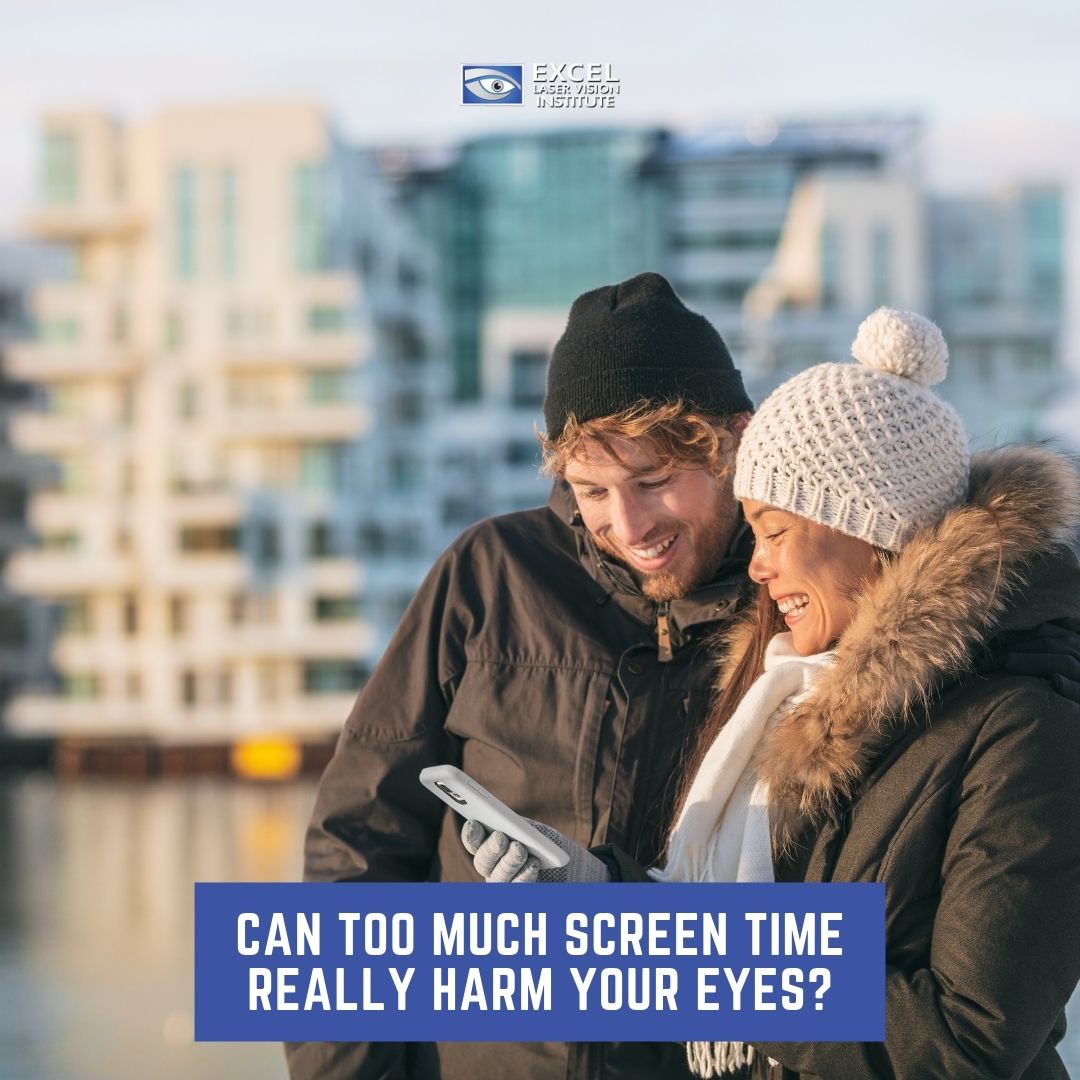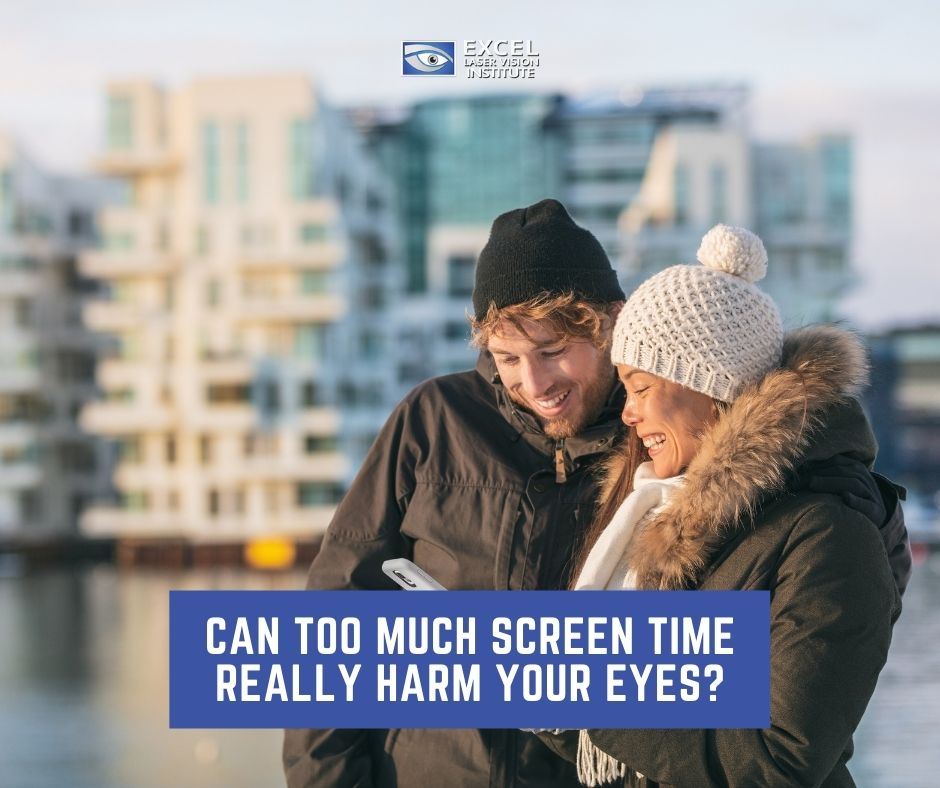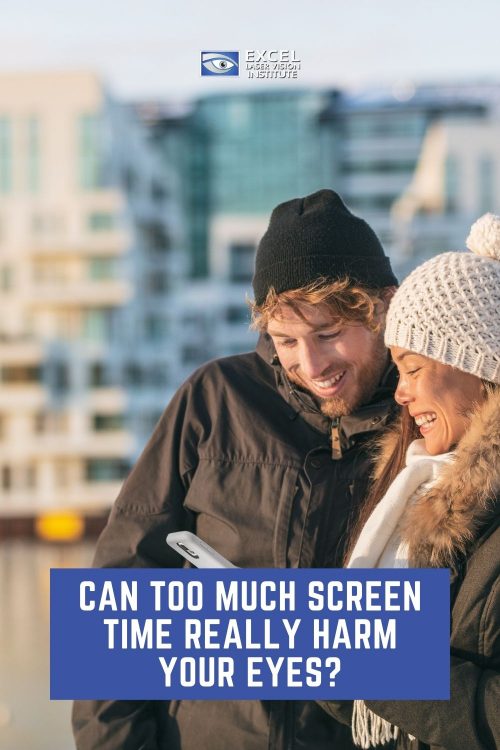
We’ve all heard about how spending too much time on your computer or your cell phone can come with consequences for your eyes. Your parents may have set limits on how long you were allowed to watch TV when you were a child, but in a modern world highly motivated by technology, it can be difficult to catch a break when you need these devices for work or to stay in contact with members of your household. Hope is not all lost, though. Our LASIK Orange County specialists can teach you how to effectively manage your screen time and take better care of your eyes by becoming aware of the risks and how to monitor how much time you are really spending on all of your devices.

How much time are you really spending on your phone?
Based on several studies conducted, it appears that the average American spends between 3 hours and 15 minutes to 3 hours and 43 minutes a day on their cellular devices. People are also checking their phones an average of 58 times a day, 30 of those times being during work hours. As mobile device use increases, the amount of time spent watching television decreases. During the 2020 lockdowns, screen time only increased.
What is digital eye strain?
DIS, also known as computer vision syndrome, is a common vision problem that persists in individuals who are using their devices for 2 uninterrupted hours. It is disturbingly common, as it has been surveyed 58% of American adults suffer from DIS/CVS. While permanent vision damage from screen time is rare and it’s probably not going to lead you requiring Orange County laser eye surgery, it can lead to damage in your retina. If you do not take adequate breaks away from the screen, you may experience pain in your eye or headaches. If you are not drinking an adequate amount of water everyday, then you are more likely to experience frequent headaches. If you have pre-existing eye conditions, this can also escalate the problem.
Too much screen time can also be linked to other physical and psychological health problems, including obesity, insomnia, depression & anxiety, neck and back problems, and poorer grades.
Addiction just as bad as dependence on physical substances?
It’s easy to understand how easy it is to get immersed in the world of screens. Unlike the traditional television, you get to control what content you see and when you want to see it, and for how long. You can do just about anything on the Internet, almost giving you a sense of augmented reality, but can being addicted to a screen be just as bad as other forms of addiction such as gambling, alcohol or drugs?
Almost anything that triggers our reward system can become addicting because everyone wants to feel good all the time. Experts disagree on whether or not screen addiction should be approached the same as other forms of addiction. Mark Griffiths, a Nottingham Trent University behavior addiction professor has stated his own opinion on the topic, “I certainly believe that things like video games, social media, gambling, et cetera, can be genuinely addictive. [But] by my definition, very few people are genuinely addicted to video games or are genuinely addicted to social media.” In other words, he believes that screen activity addiction is serious, but the amount of people who actively suffer from this issue is exaggerated.
It also turns out that it’s not the screen itself that causes the addiction, but it is dependent on the type of content one is consuming. The faster the pace, the more addictive.
What is the 20-20-20 rule?
It is recommended that every 20 minutes you spend on a screen, that you do something else for 20 seconds, 20 feet away from your device. This can help reduce eye strain caused by looking at a screen for too long. You can also try to do some of your favorite activities offline. If you are an avid reader, for example, read the old fashion-way again and shop for physical copies of your favorite books.
Conclusion
If you feel that your eye strain may be caused by an underlying condition not caused by your screen time, talk to your eye specialist right away. They ask you questions regarding your optical and general medical history and run any necessary exams, but if you are someone who has difficulty even looking at screens due to preexisting vision problems, then you may be a candidate for Orange County LASIK eye surgery. If you are seriously considering this option for you and aren’t sure where to begin the process, give us a call today at (866) 923-9235.




